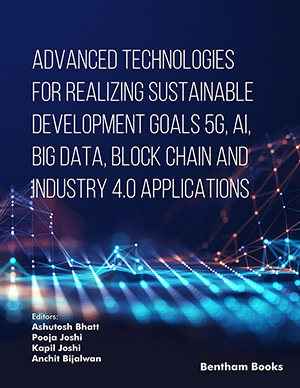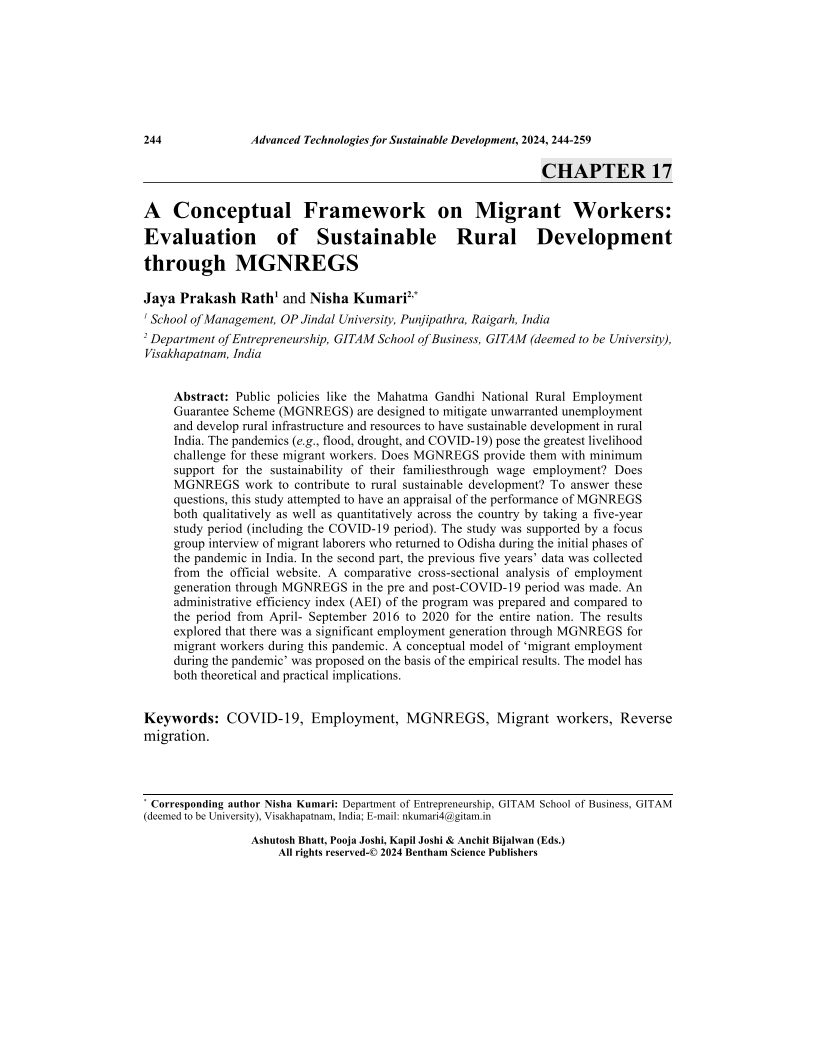A Conceptual Framework on Migrant Workers: Evaluation of Sustainable Rural Development through MGNREGS

- Authors: Jaya Prakash Rath1, Nisha Kumari2
-
View Affiliations Hide Affiliations1 School of Management, OP Jindal University, Punjipathra, Raigarh, India 2 Department of Entrepreneurship, GITAM School of Business, GITAM (deemed to be University), Visakhapatnam, India
- Source: Advanced Technologies for Realizing Sustainable Development Goals: 5G, AI, Big Data, Blockchain, and Industry 4.0 Application , pp 244-259
- Publication Date: October 2024
- Language: English
A Conceptual Framework on Migrant Workers: Evaluation of Sustainable Rural Development through MGNREGS, Page 1 of 1
< Previous page | Next page > /docserver/preview/fulltext/9789815256680/chapter-17-1.gif
Public policies like the Mahatma Gandhi National Rural Employment Guarantee Scheme (MGNREGS) are designed to mitigate unwarranted unemployment and develop rural infrastructure and resources to have sustainable development in rural India. The pandemics (e.g., flood, drought, and COVID-19) pose the greatest livelihood challenge for these migrant workers. Does MGNREGS provide them with minimum support for the sustainability of their familiesthrough wage employment? Does MGNREGS work to contribute to rural sustainable development? To answer these questions, this study attempted to have an appraisal of the performance of MGNREGS both qualitatively as well as quantitatively across the country by taking a five-year study period (including the COVID-19 period). The study was supported by a focus group interview of migrant laborers who returned to Odisha during the initial phases of the pandemic in India. In the second part, the previous five years data was collected from the official website. A comparative cross-sectional analysis of employment generation through MGNREGS in the pre and post-COVID-19 period was made. An administrative efficiency index (AEI) of the program was prepared and compared to the period from April- September 2016 to 2020 for the entire nation. The results explored that there was a significant employment generation through MGNREGS for migrant workers during this pandemic. A conceptual model of migrant employment during the pandemic was proposed on the basis of the empirical results. The model has both theoretical and practical implications.
-
From This Site
/content/books/9789815256680.chapter-17dcterms_subject,pub_keyword-contentType:Journal -contentType:Figure -contentType:Table -contentType:SupplementaryData105

